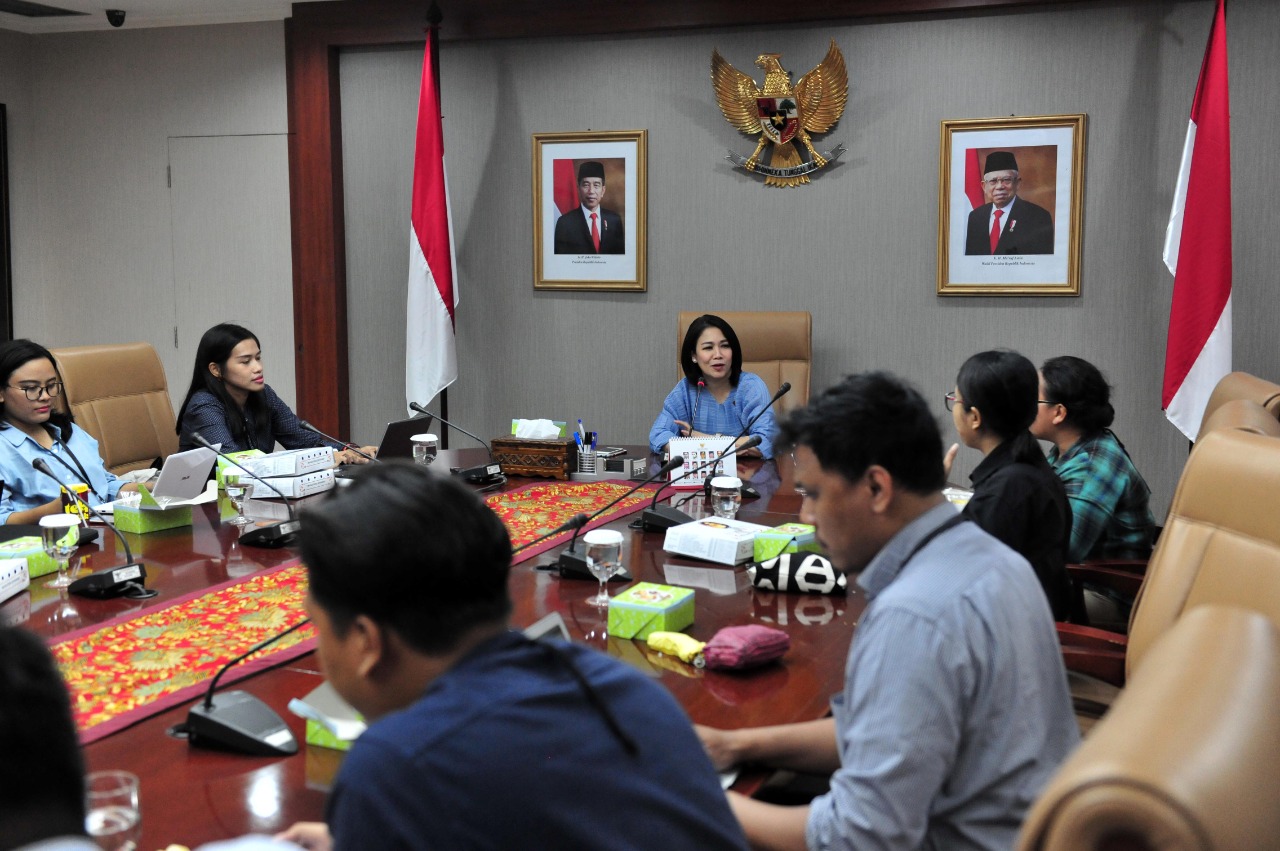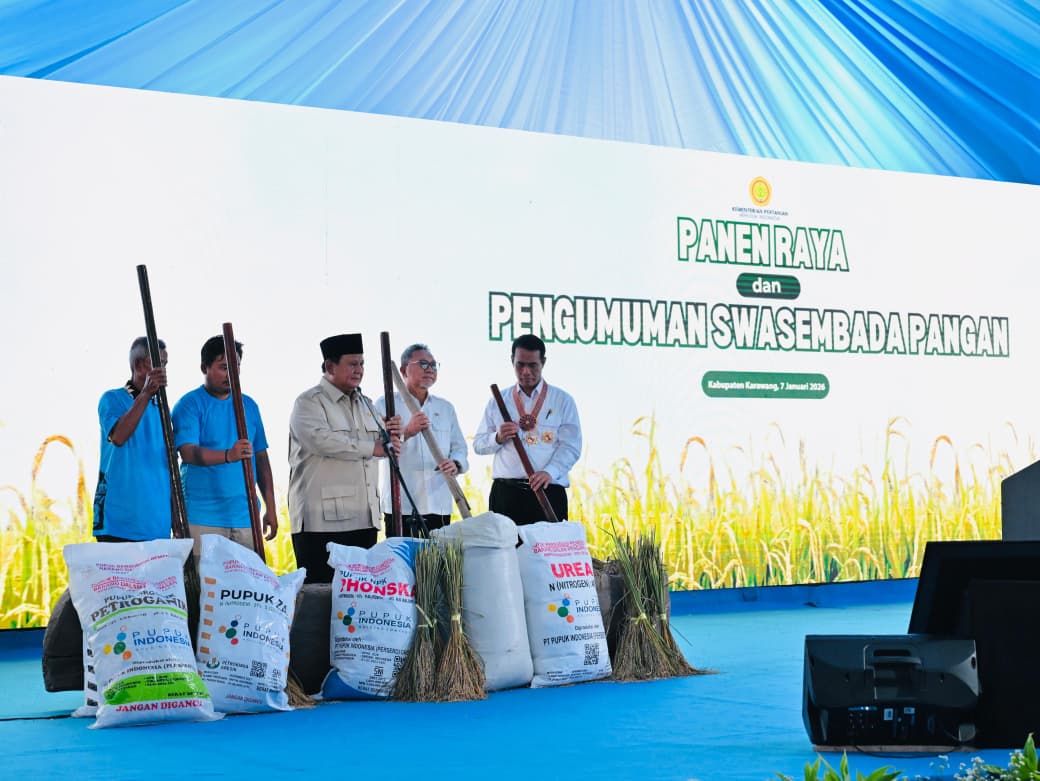Job Creation Bill to Provide Ease of Doing Business for All Investors

Special Staff to the Presiden, Dini Shanti Purwono, delivers a press statement in Cabinet Secretariat’s meeting room, Ministry of State Secretariat, Jakarta, Friday (21/2). (Photo by: Jay/PR).
Job Creation Bill is aimed to ease business licensing process and create a more conductive climate for doing business to all investors, according to Special Staff to the President on legal issue Dini Shanti Purwono.
“It benefits not only the big investors, but it provides an ease of doing business for all investors, be it in big, medium, small, or micro businesses,” Dini when delivering her statement to the press in the meeting room of Cabinet Secretary, Ministry of State Secretariat, Jakarta, Friday (21/2).
She went on to say that job creation is included in the Omnibus Law along with three other subjects, such as taxation, capital city relocation, and pharmacy. Omnibus Law means law that covers a number of diverse or unrelated subjects.
According to the Special Staff, the Government, during President Joko Widodo’s first term administration, focused on infrastructure development, while in the second term, it focuses on human resources development and economic growth. Thus, it is important to enact the Job Creation Bill since unemployment is one of the country’s big issues.
The President, during the second term, wants to stimulate economic growth by increasing investment both domestic and foreign investments.
“Without investment, there is no cash inflow which will affect the job creation. Consequently, purchasing power will be dropped and it will lead to a low economic growth,” she said.
By creating a favorable climate for business, more jobs will be opened which can absorb workers and will eventually stimulate micro, small, and medium sized enterprises (MSMEs). Therefore, regulations on ease of doing business benefit not only the big investors but also the MSMEs.
On that occasion, Dini also said that industries with high environmental risk or industries that produce or utilize hazardous materials are obliged to meet Environmental Impact Analysis (AMDAL). Other than that, they also need to follow guidelines and will be monitored and evaluated regularly.
“Sanction will be imposed to those violating the guidelines. Their business licenses will be revoked when they commit multiple or severe violations,” she said. (FID/EN)
Translated by : Rany Anjany
Reviewed by : Mia Medyana








